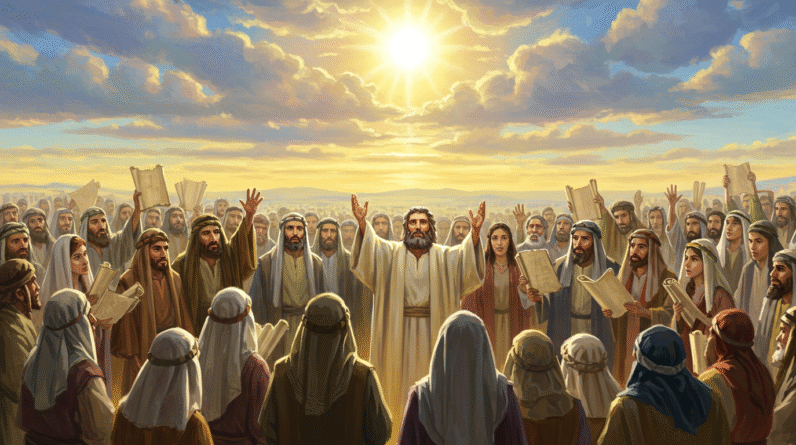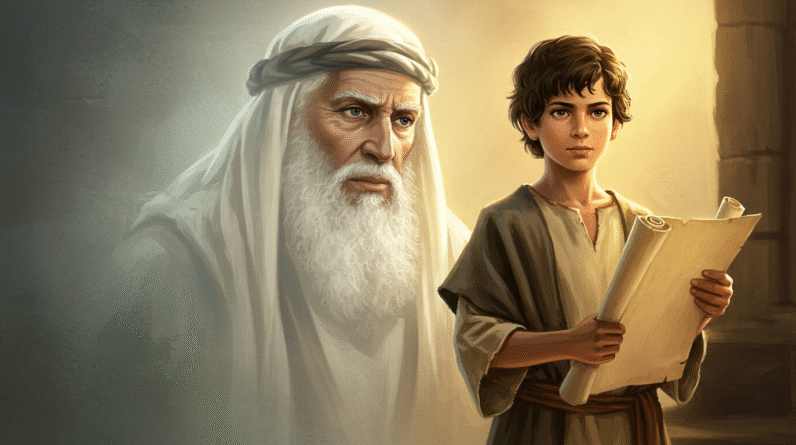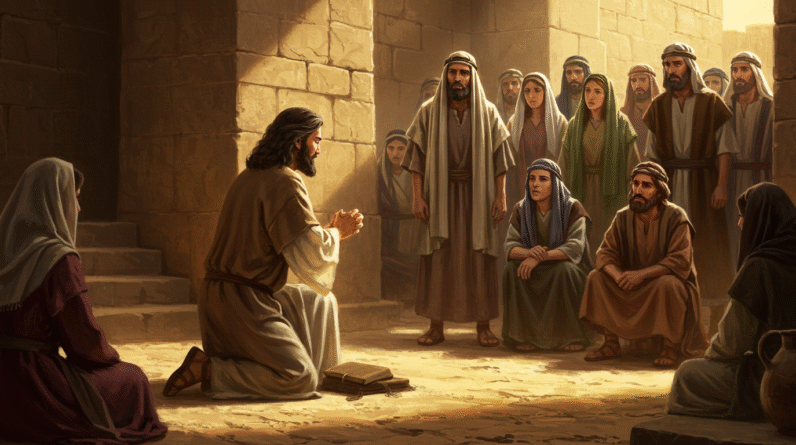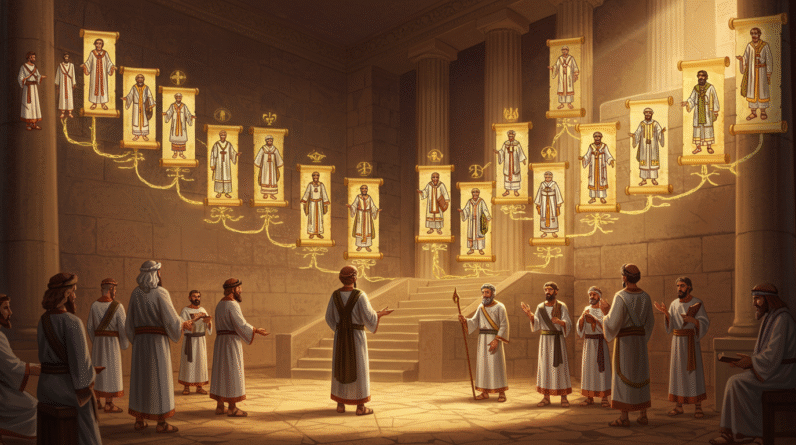Ezra the Scribe: Why His Role Was Crucial in Preserving God’s Law
Hey there! You’re probably familiar with many of the great stories and figures of the Bible, but there’s a chance you might not be entirely acquainted with Ezra the scribe. So, pull up a chair, grab your favorite beverage, and let’s dive into the fascinating world of Ezra and his monumental role in preserving God’s law.
Who Was Ezra the Scribe?
Ezra wasn’t just your everyday scribe—think of him more like a passionate librarian and dedicated teacher rolled into one. Born during the Babylonian Exile, Ezra was a priest and scribe deeply committed to studying, living, and teaching God’s law to the Israelites. His life and work were pivotal during a crucial time when the Jewish people were returning to Jerusalem after a long period of displacement.
The Life and Times of Ezra
Ezra was a descendant of Aaron, the brother of Moses, which made him a priest by birth. His journey begins in Babylon, where he had been living among other exiled Jews. Acknowledged for his vast knowledge and dedication to the scriptures, Ezra found favor in the eyes of the Persian king Artaxerxes. The king permitted Ezra to lead a group of exiles back to Jerusalem, tasking him with a significant responsibility: to ensure that God’s law was taught and observed in the newly returned community. It’s clear from the start that Ezra saw himself as more than just a passive participant in history; he was committed to leading, teaching, and preserving.
Ezra’s Role in Rebuilding Jerusalem
With an unwavering heart for his people and their spiritual wellbeing, Ezra’s journey back to Jerusalem wasn’t merely about a physical relocation. It was deeply symbolic of a spiritual reclamation for the people of Israel.
Establishing Authority as a Teacher of the Law
Upon his arrival, Ezra didn’t waste time asserting his role as an authority in teaching the law. Can you imagine the responsibility? It was like getting the keys to a historical, sacred library and being asked to ensure everything remained intact and understood for future generations. In Ezra 7:10, we’re told, “For Ezra had set his heart to study the Law of the Lord, and to do it and to teach his statutes and rules in Israel.” This verse highlights his threefold dedication: study, practice, and teaching. Each of these elements was crucial in maintaining the integrity of God’s words.
Bringing the Community Together
Imagine a society just getting back on its feet after years of exile—disoriented, perhaps a bit scattered in their practices. Ezra brought these folks together. His public readings and interpretations of the law helped unite the community under the same spiritual tenets. With cleverness and gravitas, he helped shape a cohesive identity for his people based on the timeless laws that had been at the heart of their culture for centuries.
The Art of Scribing: Preserving the Sacred Hands
Ezra’s title as ‘the scribe’ wasn’t just a fancy hat; it was a commitment to excellence in preserving the scriptures accurately. In his time, being a scribe wasn’t simply jotting notes but a meticulous and sacred responsibility.
Ensuring Accuracy in Transmission
One might liken Ezra’s meticulous nature to that of an artist, crafting and preserving each word with care and precision. The stakes were high! He had the monumental task of ensuring that every jot and tittle of God’s law was recorded and transmitted without error. Ezra’s dedication to this role was a precursor to the extensive work of future scribes and scholars. His work laid the groundwork for religious leaders to ensure the teachings remained unchanged through generations.
The Impact of Ezra’s Work
Through his careful scribing, Ezra was ensuring that God’s word was accurately passed down to future generations. Imagine a giant game of telephone, but one where it’s absolutely critical that the message at the end is the same as at the start. Ezra’s expertise as a scribe was the backbone of preserving the continuity and fidelity of Jewish sacred texts.
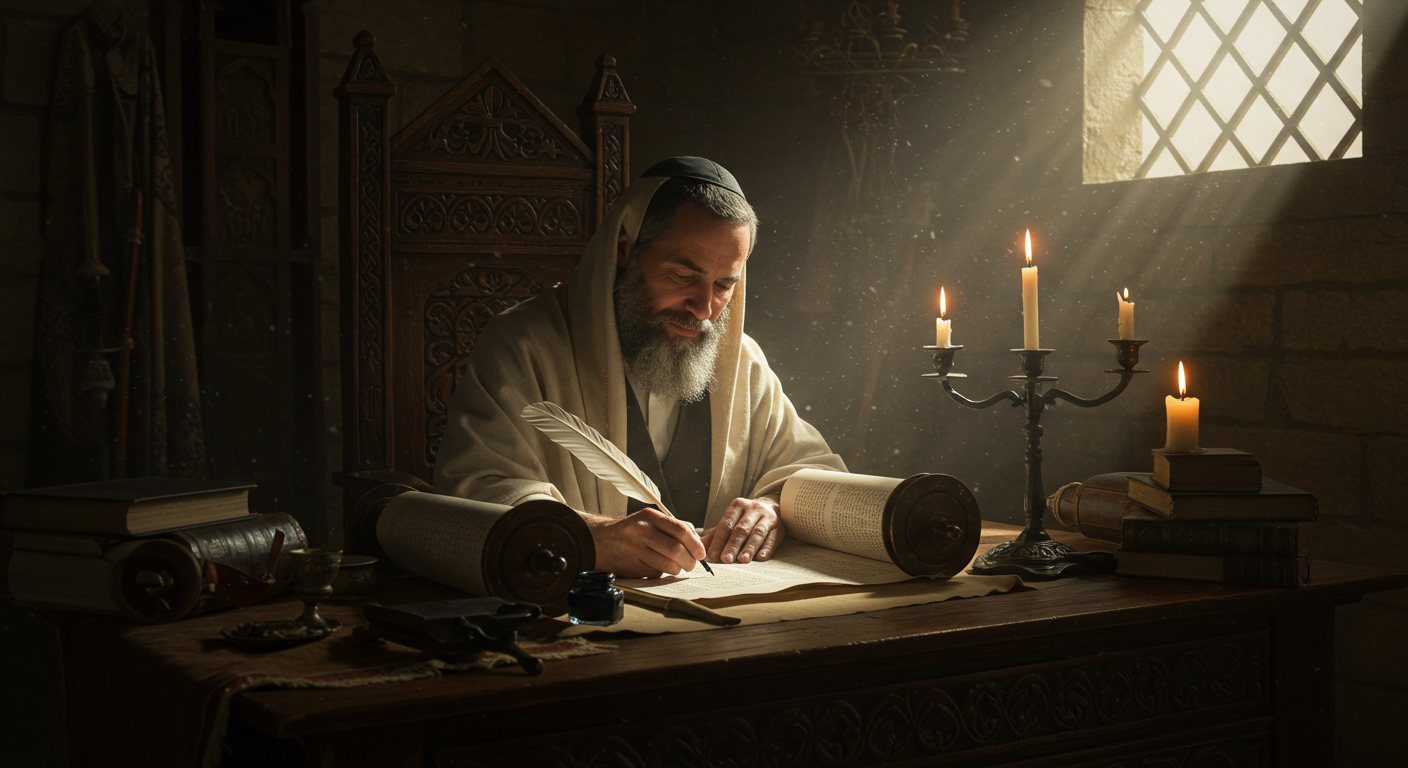
Ezra’s Influence on Future Generations
What made Ezra so extraordinary wasn’t just his role in preserving the law for his contemporaries—but how his efforts extended far beyond his lifetime, shaping the course of Jewish faith and practice for generations.
Re-establishing the Covenant
Ezra was pivotal in re-establishing the covenant relationship between God and the Israelites. The act of bringing the law back into the center of daily life renewed a sense of identity among the people. In Nehemiah 8, Ezra stands on a wooden platform, reading aloud from the Book of the Law from early morning until noon to an attentive audience. This public declaration not only reinstated the importance of adherence to the covenant but also forged a communal sense of belonging and purpose.
The Legacy of Scriptural Fidelity
Let’s talk about legacies. Imagine being remembered for thousands of years! Ezra’s dedication has left an indelible mark on Jewish tradition and heritage. His commitment has ensured that when you read a Bible today, you’re engaging with words that have been meticulously preserved through his example. The very act of reading scripture—the quiet weekdays poring over pages—owes much to Ezra’s initial dedication.
Ezra’s Influence on Jewish Education and Practice
Ezra wasn’t just a scribe; he was an educator and reformer, firmly establishing the practice of reading and interpreting scripture publicly. His influence can still be seen in the way Jewish education prioritizes scripture and tradition.
How Ezra the Scribe Shaped the Faith
If you’ve ever seen a ripple spread through water, you’ll understand how Ezra’s influence extended beyond the immediate sphere of his work. He was instrumental in shaping religious practices that continued to inform Jewish—and later Christian—understanding of sacred texts.
Standardizing the Texts
One of Ezra’s lasting contributions was standardizing the texts of the Hebrew Bible. By overseeing the transcription and teaching of these texts, he helped ensure a standard of uniformity and reliability. This was no small feat, considering the lack of modern conveniences like copy machines or digital files. This standardization marked a shift from oral traditions to a written legacy, giving future generations a reliable, tangible link to their spiritual identity.
Inspiring Subsequent Generations
Ezra’s dedication to the law serves as an inspirational anchor, urging future generations of scribes, rabbis, and scholars to uphold the integrity and sanctity of sacred texts. His life’s work inspires those tasked with preserving scripture, reminding them of the sacred weight this duty holds.
Becoming a Symbol of Faithfulness
What’s moving about Ezra’s narrative is how he stands as a timeless symbol of faithfulness—not just to his immediate community but to the reverberations of faith that continue to influence believers. Whether you’re religious or not, there’s something profoundly compelling about someone who dedicates their life to preserving and teaching something so significant.
Reflections on Ezra’s Role
We’ve covered a lot of ground about Ezra the scribe and his incredible impact on preserving God’s law. But where do we go from here? It’s essential to not only understand Ezra’s historical significance but also reflect on what his story might mean for us today.
Lessons in Dedication
Ezra’s life underscores the importance of diligence, commitment, and the care we must take when handling what is sacred to us—be it religious texts, personal beliefs, or cultural traditions. There’s a quiet honor in dedicating oneself to such pursuits, and Ezra’s life serves as a reminder of the potential impact one person can have on faith, tradition, and history itself.
The Continued Relevance of Ezra’s Work
Today, the importance of Ezra’s work remains vivid as we continue to navigate spiritual identity and scriptural integrity. His story is a testament to the timeless pursuit of faith, exploring how ancient wisdom continues to guide and challenge us in contemporary times.
Strengthening Community Bonds
Ezra’s life also highlights the power of storytelling in shaping community and identity. By bringing people together through the public reading and interpretation of sacred texts, he demonstrated how enduring cultural and spiritual bonds could be fostered.
Conclusion
There you have it—a thoughtful exploration of why Ezra the scribe was crucial in preserving God’s law. As a figure who bridged the past and the future, Ezra’s story is one marked by dedication, faithfulness, and impact. His legacy reminds us of the significant roles scribes and educators play in maintaining the continuity and integrity of cultural and spiritual narratives.
Explore More
For further reading and encouragement, check out these posts:
👉 7 Bible Verses About Faith in Hard Times
👉 Job’s Faith: What We Can Learn From His Trials
👉 How To Trust God When Everything Falls Apart
👉 Why God Allows Suffering – A Biblical Perspective
👉 Faith Over Fear: How To Stand Strong In Uncertain Seasons
👉 How To Encourage Someone Struggling With Their Faith
👉 5 Prayers for Strength When You’re Feeling Weak

📘 Jesus and the Woman Caught in Adultery – Grace and Mercy Over Judgement
A powerful retelling of John 8:1-11. This book brings to life the depth of forgiveness, mercy, and God’s unwavering love.
👉 Check it now on Amazon
As a ClickBank Affiliate, I earn from qualifying purchases.
Acknowledgment: All Bible verses referenced in this article were accessed via Bible Gateway (or Bible Hub).
“Want to explore more? Check out our latest post on Why Jesus? and discover the life-changing truth of the Gospel!”



